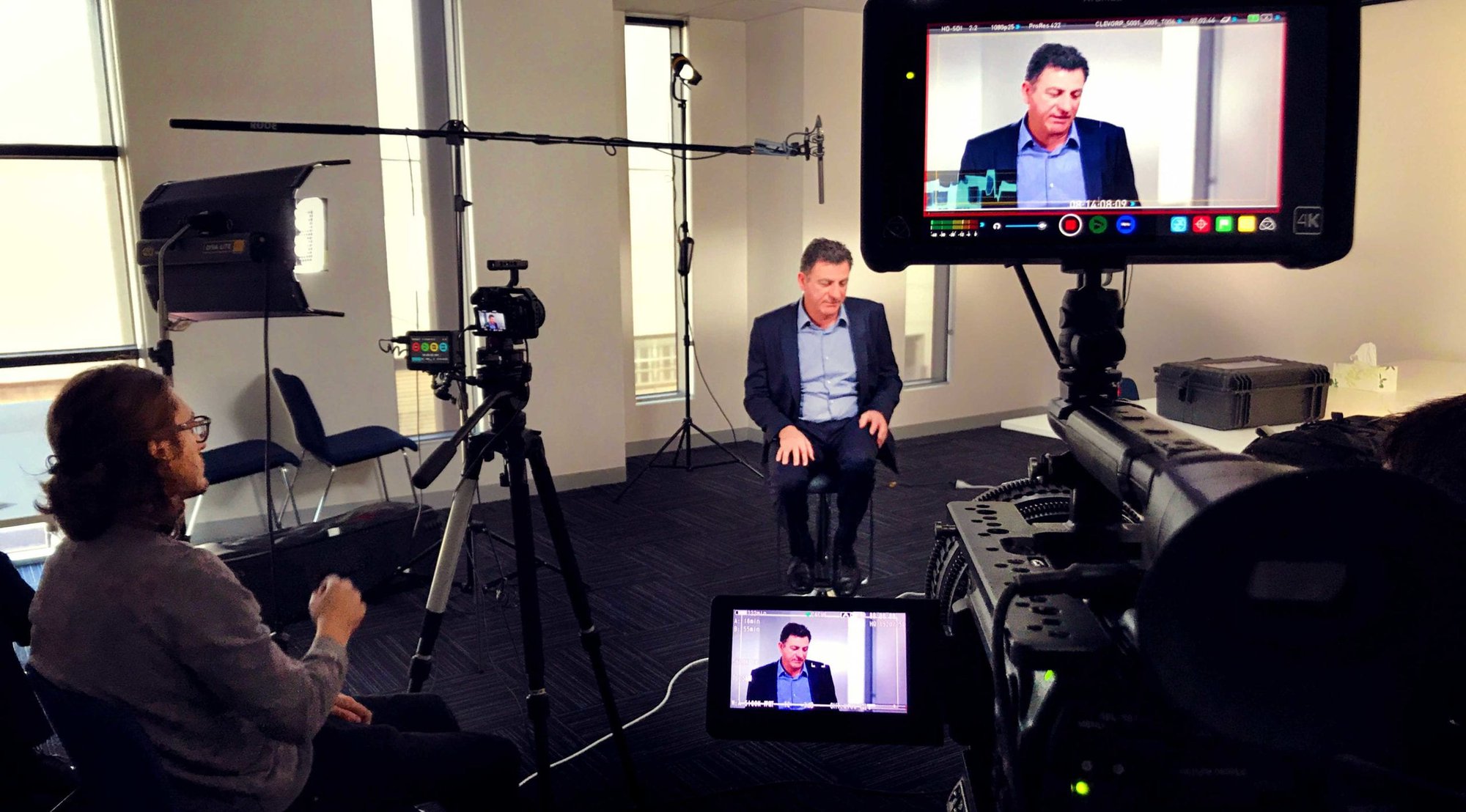In today’s digital world, customer testimonials are essential for building trust and influencing buying decisions. With 89% of consumers relying on online reviews and 92% of B2B buyers more likely to purchase after reading trusted testimonials, these real stories from customers are more powerful than traditional advertising. Using well-designed customer testimonial questions helps gather authentic feedback to improve products, services, and marketing efforts.
Video testimonials offer especially compelling social proof, with 72% of marketers reporting higher conversions and ROI. A well-crafted video testimonial provides genuine insights that boost credibility and persuade potential customers. Asking the right questions is key to eliciting detailed responses that highlight your product’s tangible benefits and real-world impact, making your client testimonials valuable assets for your sales and marketing teams.
1. Background Questions: Setting the Stage

“Can you tell us about your company and your role?”
Start by letting your client introduce themselves and their business. This builds connection and context for potential clients. Leveraging existing customers' stories in testimonials can showcase real-life benefits and provide valuable social proof. Encourage them to share what drives their company and their personal goals. This insight helps future customers relate to the testimonial and see the relevance to their own needs.
“How did you discover our company?”
Understanding how your current customers found you helps paint the journey for others. Whether through referrals, search engines, or social media, or review sites such as G2.com, this question reveals your strongest marketing channels and guides repeat customers to follow a proven path.
When crafting background questions, make sure to cover key points to ensure the testimonial is both relevant and engaging.
2. Problem and Challenge Questions: Creating Relatability

“What problem were you facing before using our product or service?”
This question invites clients to share their pain points, helping other prospective customers identify with similar struggles. Sharing these stories helps other customers see that they are not alone in facing similar challenges. Asking for specific examples makes the testimonial more authentic and relatable. Encourage clients to provide a detailed response to give potential customers a clear understanding of their journey.
“What solutions did you try before choosing us?”
Highlighting competitors or alternatives your client considered demonstrates why your product stands out. Understanding the decision making process helps refine your marketing and sales approach. It reassures potential buyers that your offering is the superior choice.
3. Decision Factors: Why Choose You?

“What made you choose our product or service over others?”
This question uncovers your unique selling points from the customer’s perspective. Understanding the factors that influence a customer's decision can help you better position your product. Whether it’s product features, customer service, or pricing, their answer helps marketing teams understand what resonates most with the target audience.
“Did you have any hesitations before purchasing?”
Addressing initial concerns openly builds trust. A positive buying experience can enhance your company's reputation and encourage more customers to choose your brand. Hearing how others overcame doubts can persuade potential customers who may share similar reservations.
4. Impact and Results: Showcasing Success

“How has our product or service helped you achieve your goals?”
Encourage clients to share measurable outcomes or improvements in their personal life or business. Understanding the impact on a customer's life can foster emotional connections with potential buyers. Concrete results like time saved, revenue growth, or efficiency gains provide powerful proof of your product’s effectiveness. Encourage customers to share before-and-after situations with measurable benefits.
“Can you share a specific example where our product exceeded your expectations?”
Stories of unexpected benefits or standout moments make testimonials memorable and compelling. Invite clients to mention any other benefits they experienced beyond the primary product or service.
5. Experience and Support: Building Confidence

“How was your experience during the implementation stage?”
Smooth onboarding is crucial to customer satisfaction. A seamless customer experience during onboarding sets the tone for the entire relationship. Positive feedback here reassures future clients that your company delivers on promises.
“How has our customer support helped you?”
Highlighting responsive and helpful support strengthens your brand reputation and encourages trust. Sharing the customer's experience with support can reassure future clients.
A positive experience throughout the journey builds long-term loyalty.
6. Open-Ended: Capturing Unique Feedback
“Are there any other positive outcomes or additional comments you’d like to share?”
This invites clients to provide constructive feedback or insights you may not have covered, enriching your testimonial collection process. Encourage clients to share their experiences in their own words to provide authentic insights.
How to Use These Questions Effectively

- Keep it concise: Limit your testimonial interviews to 10-15 minutes to respect your clients’ time. Structuring a testimonial interview efficiently ensures you gather valuable insights without overwhelming your client.
- Encourage storytelling: Prompt clients to elaborate with follow-up questions for richer detail.
- Mix formats: Use both video and written testimonials to reach different segments of your audience. When collecting video testimonial questions, prepare effective video testimonial questions to guide clients in sharing their stories authentically.
- Follow up: Send a testimonial form afterward for any additional thoughts or clarifications. Collecting testimonials systematically through follow-ups helps ensure you capture comprehensive feedback.
These strategies enable your marketing team to gather impactful testimonials that showcase genuine customer experiences and support your overall marketing efforts.
Why Your Sales and Marketing Teams Need Testimonials

Customer testimonials are more than just endorsements—they are powerful tools that can: Powerful testimonials highlight significant problem-solving benefits, making them especially persuasive for potential buyers.
- Build trust and credibility faster than traditional advertising
- Great testimonials are collected through thoughtful questions and a positive interviewing environment
- Address common objections by sharing authentic experiences
- Help ecommerce testimonial questions highlight product benefits
- Support your sales process by providing social proof at critical decision points
Testimonials from loyal customers can strengthen brand loyalty and attract new customers by showcasing real success stories and valuable feedback.
By integrating these questions into your testimonial strategy, you empower your teams to collect feedback that truly convince potential customers.
Frequently Asked Questions (FAQs)
How many testimonial questions should I ask to get effective responses?
It's best to ask a few questions (3-6) that cover key areas like background, challenges, decision factors, and results. This keeps the process manageable and encourages detailed responses without overwhelming your clients. For more tips, check our testimonial video production services.
Should I use video or written testimonials?
Both formats have their place. Video testimonials offer authenticity and emotional connection, while written testimonials are easy to collect and display. Combining both maximizes your reach. See examples on our portfolio page.
How do I encourage customers to provide testimonials?
Personalized requests, clear instructions, and offering incentives like discounts or recognition can motivate customers. Always respect their comfort and ask permission before sharing their stories publicly. Learn more about our testimonial collection process.
Can testimonials improve my ecommerce sales?
Absolutely. Authentic testimonials help ecommerce sites build trust, reduce hesitation, and increase conversion rates by showcasing real customer satisfaction and product effectiveness. Explore our video marketing value guide for strategies tailored to ecommerce businesses.









